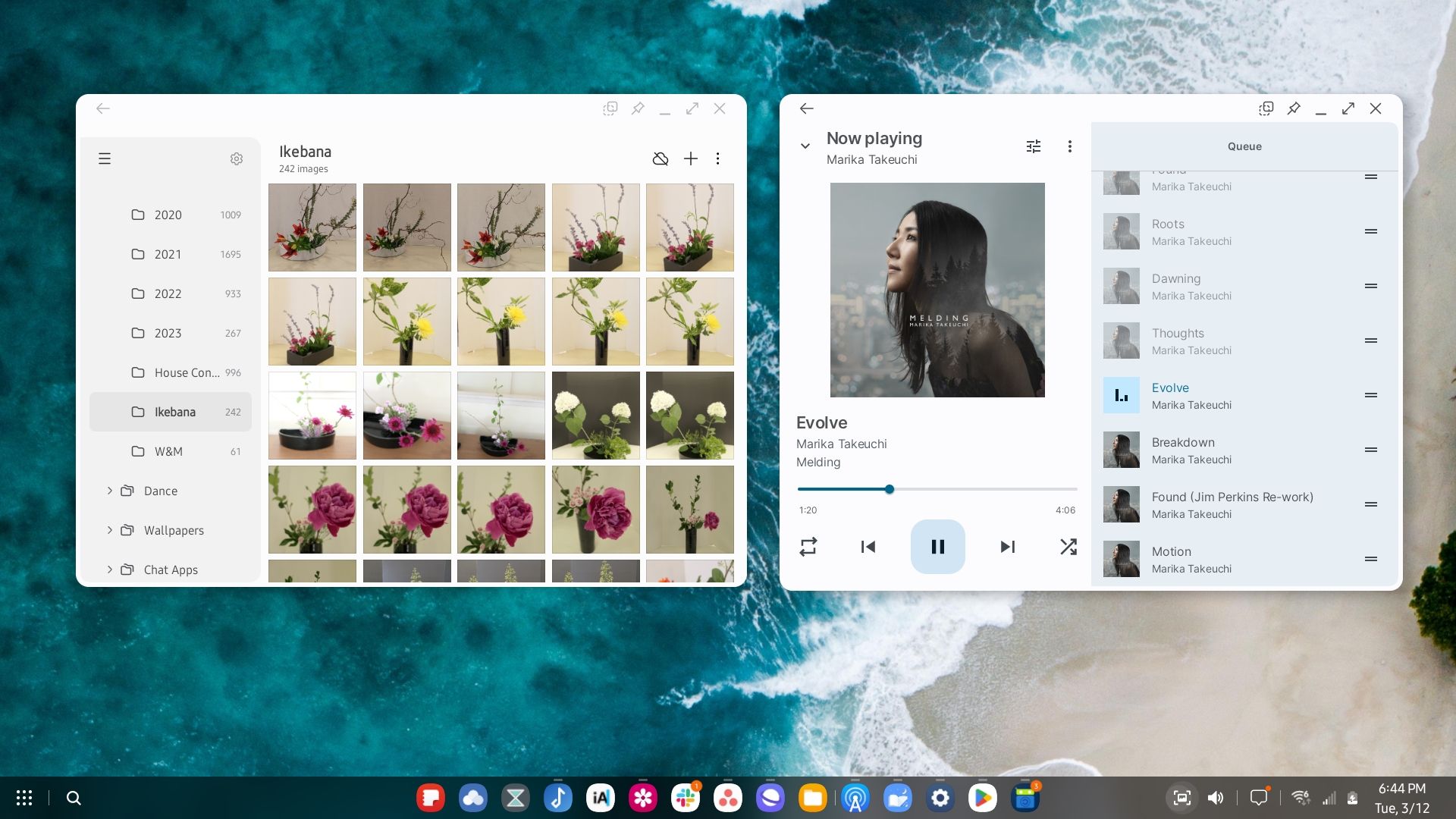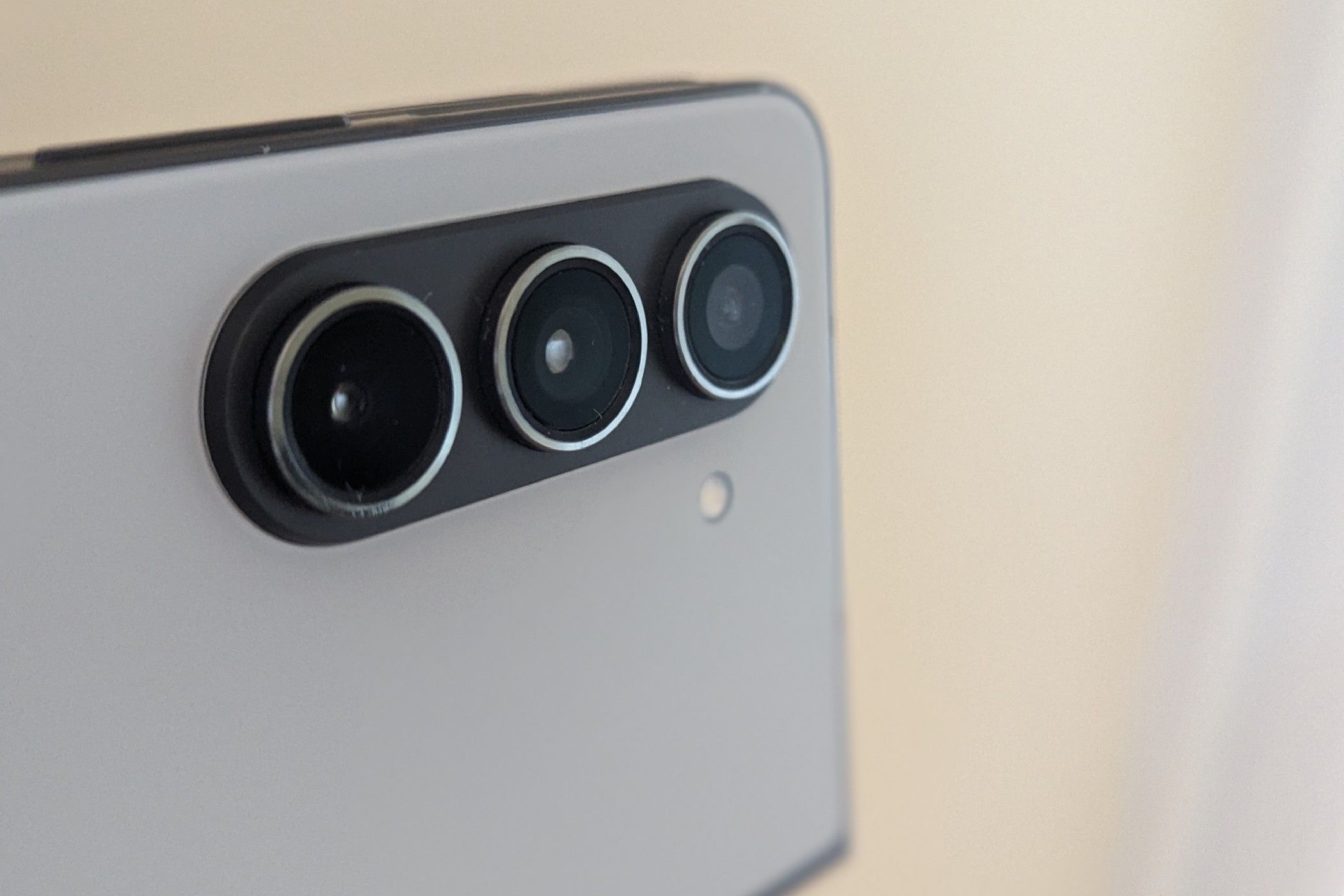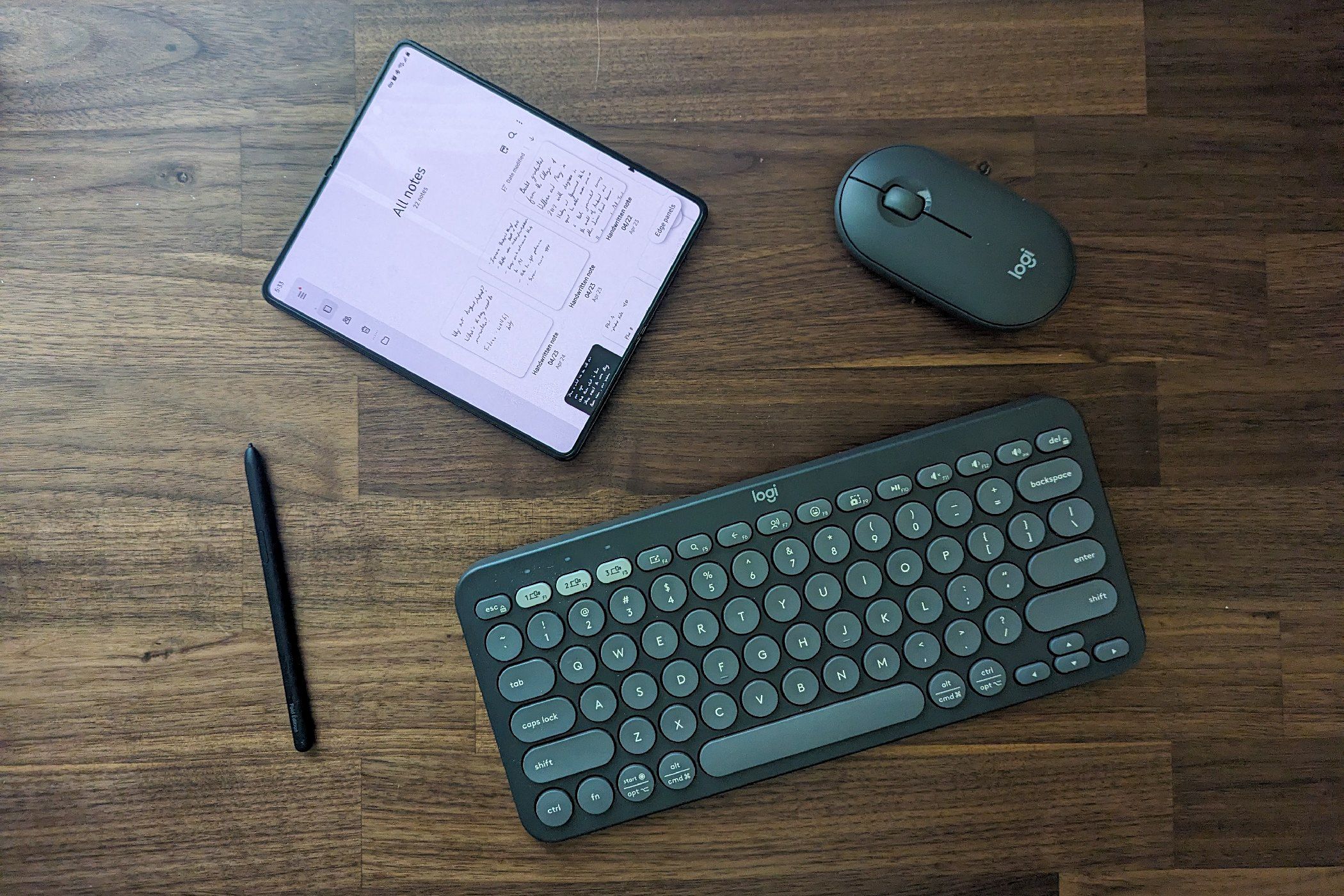There was a time when I, like many people, did most of my “computing” from a laptop. Now, I use my phone as my primary computer and no longer have a traditional PC to fall back on. Perhaps surprisingly, this hasn’t hindered my ability to work remotely.
Some Smartphones Are Great At Multitasking
Part of what allows us to get so much done from computers is the size of their screens, but that’s not all there is to it. I found that what’s just as important is the way our devices are able to multitask.
My Galaxy Z Fold 5 provides many ways to switch between apps. The default taskbar mirrors what we see on a PC, but that’s only one option. I love putting two apps side-by-side or shrinking apps into small windows and tucking them away in a corner.
Smartphone apps have gotten good enough that when you’re able to use more than one at a time quickly, it’s surprising how much you can get done. I still wouldn’t want to work on a conventionally sized smartphone, but once a device hits seven inches and starts to feel like a small tablet, I’ve discovered that it’s big enough for me, as long as the interface can keep up.
A Desktop Mode Like Samsung DeX Is Essential
To be clear, some tasks simply require a larger screen. If I’m trying to design a website or work with a spreadsheet, I want something larger. But the issue isn’t that my phone isn’t powerful enough or that it lacks the necessary software. All I need is the option to plug my phone into a larger display.
Samsung gives me that. For years, Samsung has offered a full-blown Android desktop mode known as DeX. If you can get everything you need done from a Chromebook, then chances are you can also do your work from DeX. I, frankly, have many uses for Samsung DeX.
Motorola is another option. The company offers Smart Connect on its higher-end phones. I found that it is not as mature as DeX, but it’s very close. OnePlus phones and newer Pixel phones now mirror displays when connected to an external monitor. I wouldn’t be as comfortable doing away with my PC if screen mirroring were my only option, but it’s better than nothing. Google does admittedly have its own Android desktop in the works, but it has been barebones for years.
There’s an App for Most of What I Need
I remember the early days of Android when I was waiting for new apps to come out to do what I could do on my laptop. For me, those days have passed. While there are still areas where the Android app may not be quite as good, in almost every case, it’s good enough.
Many Android web browsers offer a desktop-like tab bar when they’re on a larger screen, including baked-in options like Google Chrome or Samsung Internet, as well as third-party alternatives like Vivaldi. There are office suites ranging from Google Docs and Microsoft 365 to competitors like OfficeSuite and Polaris Office. There are Adobe apps that may not be all a professional video editor needs, but they’re more than competent enough for someone doing the basics like me. If someone sends me a PDF, I can view it, annotate it, and send it back.
Most of the Rest Can Be Done In a Browser
There are occasional edge cases where a mobile app doesn’t exist, or the mobile app is missing features that I need. The thing is, so much computing these days is done on the web anyway. For niche tasks like converting one file type to another or stripping the DRM from an eBook, there’s usually a website that can make it happen.
Cloud computing and websites have changed what’s possible. You don’t need a powerful CPU or graphics card to do intensive tasks if you have a fast internet connection that can handle it instead.
Thanks to cloud gaming, I don’t even need a PC to access my existing Steam library. My preferred way to play has become plugging AR glasses into my phone and using a Bluetooth gamepad. This is through an app, not a browser, but the point’s the same—you don’t necessarily need native versions of apps or games in order to run them on your phone.
For Some Tasks, Working With a Phone Is Faster
To my surprise, using a mobile app is often quicker than doing the same task on a PC. It’s easier to share files from a phone interface than a laptop. The latter is more inclined to nudge you toward a file manager, while phones are quicker to help you share directly from an app. I can take a photo on my phone, apply quick touch-ups, and upload it in less time than it would take for me to return to a PC and transfer the files.
I was surprised how quickly I was able to do taxes this year from a mobile app. Many smartphone apps let you skip passwords and use your fingerprint. Slack on the desktop may have more features, but I find it easier to navigate on the phone, which leads to me being more engaged.
Video Chat Apps All Support Phones
Even though I’ve worked remotely for my entire adult life, I haven’t spent much time on video calls. Yet when the need arises, this is an area phones handle just fine. No matter which service someone wants to chat using, a mobile app is available. Not only that, in my case, a phone has both a better webcam and a better mic than my laptop did.
If you regularly host meetings and have to give presentations, then a phone probably won’t be ideal. Being able to share your screen and view participants isn’t a strength of small screens. Fortunately for me, I’m usually on the other end of Zoom calls, and a phone has served me well.
Most Accessories Work With Phones
How well you can work from a phone depends in large part on what accessories you invest in. I find that a cheap phone stand (seriously, one of my favorite phone accessories), a Bluetooth keyboard, and a Bluetooth mouse can be all the productivity boost I need most days.
When I want a more traditional setup, I have a lapdock that I can either connect to via a USB-C cable (for the best experience) or wirelessly. I also have a USB-C hub for connecting to external monitors or TVs. More often than not, though, I turn to my AR glasses when I want to use Samsung DeX.
My Samsung S Pen is a vital part of my workflow. I have a USB-C flash drive for backing up and transferring files. I also have a Bluetooth gamepad for when I want to game. All of these accessories just work, no additional fuss required. Doing without a PC would be much harder without them.
As phones get more powerful year after year, for many of us, there will increasingly be less need to have a separate computer. At this point, it’s just a matter of waiting for better apps that can replace desktop software for people with more demanding needs than my own. And it would be nice to see more companies provide alternatives to Samsung DeX, which, for the time being, is still the best option for anyone looking to kiss their PC goodbye.







